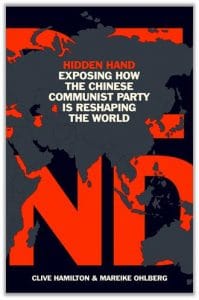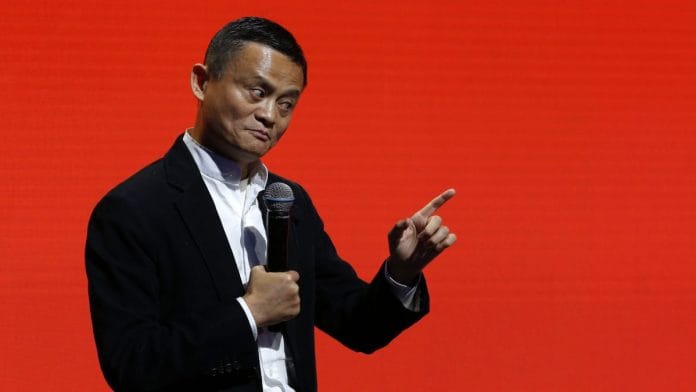In the words of one close observer, Yi-Zheng Lian, the modern Chinese economy is ‘a party-corporate conglomerate’. Whereas several years ago it was plausible to argue that the CCP would permit continuing economic liberalisation, today, it’s apparent that the Party has been moving decisively in the opposite direction.
The links between senior Party officials and Chinese companies are personal as well as political. Officials typically have financial interests in Chinese corporations, usually through family members and shell companies. Even the family of corruption-busting Xi Jinping has enormous wealth hidden offshore. Certain companies, such as the mysterious HNA Group (whose chairman reportedly died when he fell off a wall in France in 2018), are believed to be vehicles for hiding, protecting and growing the wealth of top Party officials and their families.
An academic study published in 2018 found that when firms linked to the twenty-five or so members of the Politburo purchased land owned by local governments, they paid less than half the price paid by buyers without political connections. Members of the supreme, seven-member Standing Committee of the Politburo received a 75 per cent discount. The obliging local officials all expected promotions in return. As Minxin Pei shows at length in his 2016 book, those promotions are in turn monetised through the extraction of bribes from lower-level officials and businessmen. The 2018 study shows that President Xi Jinping’s anti-corruption crackdown led to only a small decline in the discounts provided to Party leaders.
Comrade billionaire
Some executives and business commentators in the West, and even some academics, still argue that the role of the Party in private companies is merely a formality, but in the Xi era nothing could be further from the truth. Any CEO of a major company who refused to abide by a direction from the Party would soon find themselves in trouble, with their assets confiscated. The claim by Huawei’s founder, Ren Zhengfei, that he would defy any order from the Party to install backdoors in the company’s equipment does not pass the laugh test.
Also read: China jails tycoon Ren Zhiqiang, linked to article criticising Xi, for 18 yrs for graft
While the 2017 National Intelligence Law obliges all citizens and organisations to comply with any direction to cooperate in ‘national intelligence work’, it only formalises a practice going back many years. (By putting it explicitly into law, CCP leaders have shot themselves in the foot, as the law is regularly cited in the West to argue that a company like Huawei cannot refuse to assist China’s intelligence agencies.)
It stretches credulity when China’s most powerful tycoons pledge their undying allegiance to the Party, as Richard Liu of JD.com — China’s ‘Jeff Bezos’ — did when he said ‘communism would be realised in his generation’. Loyalty to the Party is a condition of doing business. When Xu Jiayin, chairman and Party secretary of the country’s largest property developer, declared that ‘everything the company possessed was given by the party’, and when heavy-industry tycoon Liang Wengen said his life ‘belonged to the party’, both were speaking a truth, though not the one intended.
From the early 2000s the CCP adopted a policy of drawing capitalists and corporate executives into the Party apparatus and subjecting them to its chain of command in exchange for official favours. Billionaires, bankers and chief executives have in this way been rewarded with appointment to the Chinese People’s Political Consultative Conference. Even a superstar entrepreneur like Jack Ma—the revered boss of the e-commerce behemoth Alibaba, who was worth $42 billion at the end of 2019—succumbs to the Party’s wishes, publicly saying, for example, that sending in the tanks to crush the students in Tiananmen Square was the ‘correct decision’.
As a measure of how deep is the fusion between Party-state and private business, the delegates at the 2018 meeting of the CPPCC included the CEOs of the biggest tech firms in the country, including Tencent’s Pony Ma and Baidu’s Robin Li. The People’s Daily revealed late that year that Jack Ma has been a member of the Party since the 1980s. So are most of the other CEOs of major tech firms.
Also read: China’s military–civil fusion policy has far-reaching implications for universities
Whether they participate in top Party events for opportunistic, ideological or patriotic reasons, by doing so they signal their deference to the CCP. In 2018 the CEO of tech giant Sogou, Wang Xiaochuan, told business leaders that they were entering an era in which their companies would be ‘fused together’ with the Party, which may ask them to allow state companies to buy a share. They should not resist, for if they were to think that their interests differ from the state’s then they would ‘probably find things are painful, more painful than in the past’ (our emphasis).
The marriage of business and the Party-state in China is especially apparent in the CCP’s policy of ‘civil-military fusion’. A pillar of China’s military modernisation, this fusion is deeper and more far-reaching than the US military-industrial complex. Since Xi Jinping ascended to power in 2012, civil-military fusion has been part of nearly every major strategic initiative, including Made in China 2025, the Next Generation Artificial Intelligence Plan, and the Belt and Road Initiative.
 This excerpt from Hidden Hand: Exposing How the Chinese Communist Party Is Reshaping the World has been published with special permission from Harper Collins.
This excerpt from Hidden Hand: Exposing How the Chinese Communist Party Is Reshaping the World has been published with special permission from Harper Collins.







Not surprising a few years back when we were hearing about shadow banking, and underground economy/gray/black markets in China that had created a 4 to 6 trillion dollar unofficial economy that rivaled the State owned enterprises. Of course the CCP stepped in to control/regulate it